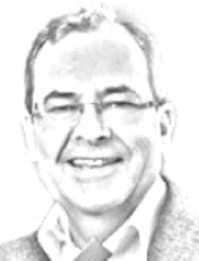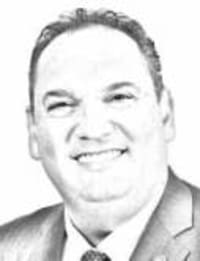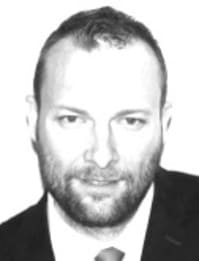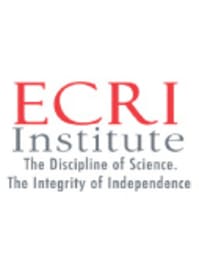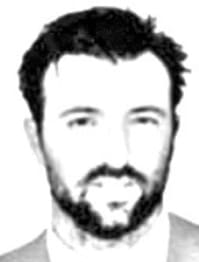Issues
Volume 19 - Issue 1, 2019
Mon, 21 Jan 2019
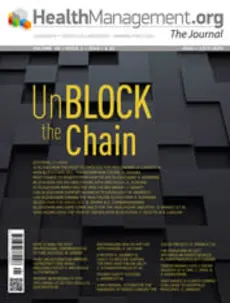
In this Issue
- Table of contents
- Editorial Board
- Download pdf (print optimised)
- Download pdf (screen optimised)
Editorial
Unblock the Chain
READ MOREBlockchain. What diverse reactions the mention of this technology gets both within and without the healthcare setting. There are those who are convinced that it’s going to transform not only healthcare but society as well. Others see it as a hyped-up technology beset with limitations which has nothing constructive to offer the healthcare sector – or, at least, for many years to come. The truth probably...
Point-of-View
Integrating labs into clinical care pathways
READ MOREBased on an Abbott-sponsored symposium “Diagnostics, Data and Integrated Clinical Care – From Insight to Action” presented at European Association of Hospital Managers (EAHM) congress, Cascais, Portugal, 27th September 2018. Pressure on healthcare systems continues to rise as the world’s population grows and lives longer; factors such as lifestyle and obesity also play a part, with the cost of di...
Better outcomes through clinical decision support
READ MOREHow can a clinical decision support system help to achieve measurably better healthcare outcomes? The Collaboratory” reflects the transformation through collaboration that Abbott wants to ignite by working in partnership with clients. Abbott supports healthcare organizations to overcome their challenges and materialize their future state vision, by breaking down the silos and barriers that exist today i...
Digitizing healthcare
READ MOREAffidea launches new digital tools in its network to improve patient experience and boost operations workflow. Affidea, the leading pan-European provider of advanced diagnostic imaging, outpatient and cancer care services, has announced the launch of two new applications to drive forward the digitisation of its operations and increase productivity and quality in imaging. Affidea will introduce for almost...
Spotlight
The essential truth
READ MORECritical evaluation of complementary and alternative medicine Due to a reverence for scientific truth in an area of healthcare that is hazardously left uncontrolled, Professor Edzard Ernst left his position as chair of physical and rehabilitation medicine at the Medical Faculty of Vienna to become the world’s first chair in complementary and alternative medicine (CAM). That was in 1993; for 25 years he h...
Management Matters
How to analyse past professional experience for future success
READ MOREA New Year represents a time to focus, regroup and set new professional targets. Corporate trainer, Michael Virardi, provides tips on getting the most out of reflection time. As we head into 2019, i’d like to share with you three of the most vital lessons I've learnt last year. I live on the small island of Cyprus where everyone knows almost everyone else and, because of this, I had come to bel...
Cover Story: Unblock The Chain
Is Blockchain the right technology for healthcare?
READ MOREBlockchain technology is touted as being potentially revolutionary, but what’s the view for the healthcare sector? Known for being an industry that’s slow to adopt and adapt to new tech, could there be any value in Blockchain for healthcare? HealthManagement.org spoke to four Blockchain experts for their views. Kamales Lardi Managing Partner Lardi & Partner Consulting GmbH, President, Women In...
How Blockchain will transform healthcare
READ MOREAdoption of distributed ledger technology will benefit patients and providers Blockchain is more than just a technology that allows us to do what we already do better, faster and cheaper. This peer-to-peer new technology has the potential to create a more inclusive economy, where patients can benefit from health data ownership. One reason people don’t understand Blockchain is because we describe it ra...
Who stands to benefit from healthcare Blockchain?
READ MOREBlockchain can provide the backbone for a health data infrastructure that enables patients to control and benefit financially from their health data. The tsunami of personal data brought about by the digital revolution now extends far beyond consumer preferences, as monetised by Facebook, Google and the likes. As life sciences merges with information technology, our most precious health data is also bein...
Blockchain solves healthcare data obstacles
READ MOREA cryptocurrency that represents the value of health information can motivate individuals to make their health data shareable to those who are willing to pay for it. Tokens are well established in the context of Blockchain technology and cryptocurrencies. It’s a digital asset that has a utility or a payment function. Very often, it’s a hybrid token and possesses both properties. However, technically,...
Is Blockchain impacting the healthcare arena?
READ MORESupporters say it has everything to offer healthcare security and transparency, but what do practical, on-the-ground C-levels really think about Blockchain's potential today? While the technology trend-o-metre and cryptocurrency world at large set off fireworks of exciting talk and disruptive use cases with Blockchain, the healthcare industry, by contrast, sits on the sidelines today as a mostly casua...
Can Blockchain support advances in radiology?
READ MOREIn 2019 we will embrace Blockchain and innovation as necessary support for the healthcare of our time. Blockchain can influence the design and implementation of new models by refining data security; provide more robust audit trail mechanisms required, eliminate medical imaging acquisitions repetition, reduce transaction costs, while allowing clinicians to access data easily, compare images, and provide pat...
Can Blockchain change the healthcare ecosystem?
READ MOREDiscovering the potential of Blockchain development; pursuing advantages of creating decentralised architectures This article presents an abstract concept and predictive benefit of applying Blockchain technology in the healthcare ecosystem. Some current working use cases show the potential short-term benefits of Blockchain database replacement. Data sensitiveness by nature and by law prevents it to be s...
Blockchain for radiology
READ MOREKey areas where Blockchain has the potential to spark a revolution & increase quality while decreasing healthcare cost. Blockchain is an exciting new technology that promises to address many problems that exist within the current framework in radiology. We discuss three key areas where Blockchain can potentially spark a revolution and increase quality while decreasing healthcare cost. Blockchain...
Blockchain and GDPR compliance for the healthcare industry
READ MOREPermissioned blockchains for healthcare data sharing management In times of rising concerns about data privacy among services providers and consumers, the arrival of the new GDPR alongside cutting-edge technologies can help to better act and benefit the healthcare industry. Concepts like traceability, compliance, access control, and risk control and assessment have always been of utmost importance for t...
Healthcare 2019: The year of the Big Data Blockchain
READ MOREAn in-depth discussion of how Big Data Blockchain solutions address the complex data needs of the healthcare industry Big Data Blockchains are solving the industry’s security and scalability challenges and hold the potential to transform all facets of the healthcare industry: from decision support to patient empowerment to data sharing and operational improvement. The healthcare industry generates a...
Winning Practices
How can automation improve outpatient care while reducing costs?
READ MORERather than being an unaffordable luxury, automation can quickly deliver an impressive return on investment. The list of advanced technology and automation in healthcare is growing, from using Amazon Echoes to provide adult social care (paconsulting.com/our-experience/argenti-using-technology-to-drive-social-care-transformation/)), to automating genome sequencing. Automat...
Patient responsibility for following up on test results
READ MOREA risk manager recently asked for guidance on the patient's responsibility in following up on the results of tests that have been ordered. In our response, we note that providers are responsible for reviewing and following up on the results of the tests they order. That responsibility typically includes ensuring that results that require involvement of patients or action on their part are communicated...
Encouraging health app use with seniors
READ MOREA digital health coaching platform offers sustainable support of the elderly population to improve their mental, emotional and physical fitness. The German healthcare system is still one of the best in the world. Nevertheless, for many years the contribution of healthcare to society has still largely been interpreted through the framework of cost reductions. increasingly, however, the willingness of...
A patient’s journey is likely to include surfing the web: how can we help?
READ MOREA “whole patient” can be a person with schizophrenia, who is also an internet user and searches for mental health information online. Between 2000–2018 the internet has grown by 1,052%, with about 4.2 billion people surfing the Web (internet World stats 2018). In Europe, about 81% of citizens use the internet at least once per week (Eurostat 2018). The number of internet users who search for he...
Patient safety culture
READ MOREResearch to evaluate radiographers’ perceptions about patient safety culture in Portuguese public and private imaging facilities found that overall perception is positive but the safety culture dimensions rating should guide culture development of safety culture improvement action plans. Patient safety is defined as the avoidance of unintended or unexpected harm to people during the provision of healt...
A multimodal system for the diagnosis of breast cancer: the SOLUS project
READ MORESOLUS is developing a multimodal breast imaging system involving diffuse optics and ultrasound. The SOLUS project develops a novel multimodal system that significantly improves the characterisation of breast lesions. Breast cancer is one of the most common cancers in the world. It is estimated that about one in eight women in Europe will develop breast cancer before the age of 85 (International Agency f...
The evolution of left ventricular assist devices
READ MORELeft ventricular assist devices (LVADs) have transformed the treatment landscape of heart failure. As the number of implants continues to increase, clinicians will have to integrate dedicated programmes in their clinics and be actively involved in the care of patients on LVAD support. Heart failure is one of the most common cardiovascular conditions worldwide. The estimated prevalence of heart fai...
Transforming lives a drone delivery at a time
READ MORERwanda shows how rapidly-developing drone technology can improve healthcare infrastructure at a national scale. In late 2016, the Government of Rwanda entered a Public Private Partnership with automated logistics company Zipline to deliver blood and medical supplies, becoming the first country to deploy drones at national scale. Based out of Half Moon Bay in Silicon Valley, Zipline is operating in...
Heat Waves: a climate change challenge to hospitals’ resilience
READ MOREThe scientifically based forecast of more frequent devastating natural disasters is coming, and so is the need for a proactive attitude against the related risks. Hospitals and healthcare systems should get engaged in such activity. Scientific evidence of the relation between natural disasters and climate change It is becoming a constant in our daily life the call for attention from the media to climate-re...
I-I-I Blog
Highlights from the I-I-I Blog
READ MOREVisit https://healthmanagement.org/blog/index or contact [email protected]. Chairman - Department of Anesthesiology and Pain Management Baylor University Medical Center, US. TOP QUOTE FROM ZOOM-ON-PROFILE Making healthcare delightful “The hospital should be the safest place for our patients and yet mistakes and infections occur that should not. It takes leadership from the top down...





